The fishy diplomacy causing tensions between Bangladesh and India
Exports of a 'sacred' fish were recently suspended during difficult relations for the two nations
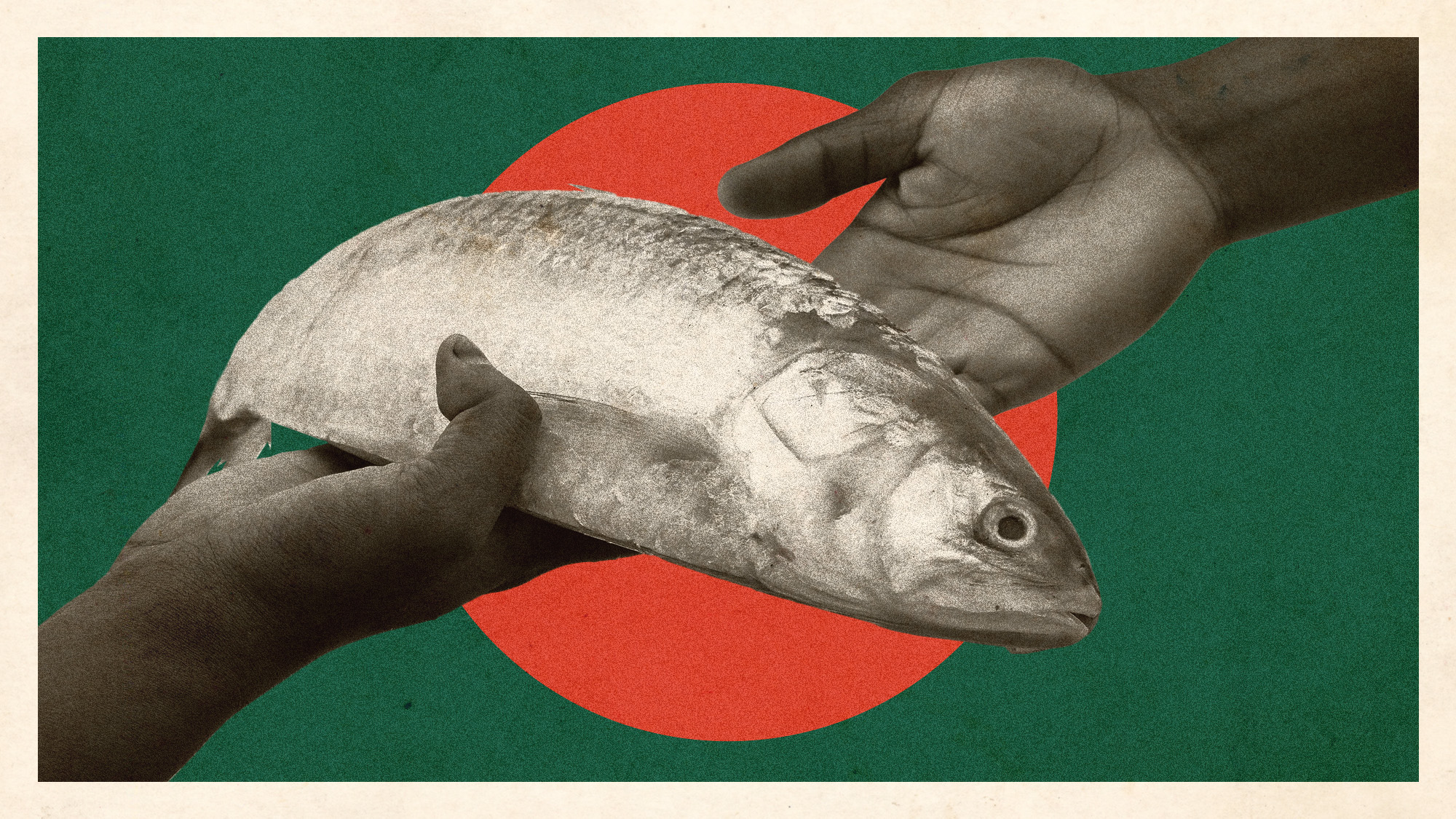
A free daily email with the biggest news stories of the day – and the best features from TheWeek.com
You are now subscribed
Your newsletter sign-up was successful
When we think about diplomacy we often picture handshakes and lavish receptions, but animals too have sometimes been involved in this crucial part of global relations.
Recently, some "fishy diplomacy" has caused "diplomatic tensions" and a "culinary crisis" between Bangladesh and India, said Al Jazeera.
Queen among fish
Hilsa, which is Bangladesh's national fish, is "cherished as the queen among fish", said the outlet. Central to the culinary identity of both Bangladesh and the bordering Indian state of West Bengal, it was once used by former Bangladeshi Prime Minister Sheikh Hasina as a "tool of diplomacy" to "foster ties" with India.
The Week
Escape your echo chamber. Get the facts behind the news, plus analysis from multiple perspectives.

Sign up for The Week's Free Newsletters
From our morning news briefing to a weekly Good News Newsletter, get the best of The Week delivered directly to your inbox.
From our morning news briefing to a weekly Good News Newsletter, get the best of The Week delivered directly to your inbox.
But now the fish, also known as ilish, is at the heart of tensions between the two nations because Bangladesh's interim government briefly banned exports of the fish to India in September. The ban came ahead of the festival of Durga Puja, which honours Goddess Durga's triumph over the demon Mahishasura, when the fish is traditionally eaten with mustard sauce.
Some saw the ban as a reproach for New Delhi's backing of Hasina, who has taken refuge in India since her removal from office. But the Bangladesh authorities insisted that the ban was simply to reduce the cost of the freshwater fish domestically because of a leaner harvest this year.
"We cannot allow ilish to be exported while our own people cannot buy them," Farida Akhter, adviser to the Bangladesh Ministry of Fisheries and Livestock, told the Dhaka Tribune.
But the plot thickened when the ban was reversed within two weeks and Bangladesh approved a 3,000-tonne shipment to India. The shipment was received with excitement: when 45 tonnes of the "prized white-fleshed fish" arrived in Calcutta, it drew hundreds of locals to the Howrah wholesale fish market, said Wion.
A free daily email with the biggest news stories of the day – and the best features from TheWeek.com
Sacred status
Whatever the reason for the brief ban, experts said it constituted "a firm departure" from Hasina's tradition of using the fish as a symbol of goodwill and friendship between Dhaka and New Delhi.
Hilsa holds "an almost sacred status" among Bengalis on both sides of the border, so its "scarcity will frustrate many", said the BBC. Although it is Bangladesh's national fish, it is "a luxury, affordable only for the rich and middle class", and "the poor can't buy it".
According to reports in Bangladeshi media, the export ban did nothing to address this – hilsa prices have surged in the local market despite the export ban. A 1.5kg hilsa was selling for around 1,800 taka (£11.50), 1.2kg for 1,600 taka, and one kg for 1,500 taka, but those prices are 150-200 taka higher than last year.
This is not the first time fish have been at the centre of diplomacy: Japan and Indonesia traded gifts of goldenfishes, multicoloured carp and tropical fish called Super Red Arowana in the 1960s and 1990s, said Nikkei Asia.
Chas Newkey-Burden has been part of The Week Digital team for more than a decade and a journalist for 25 years, starting out on the irreverent football weekly 90 Minutes, before moving to lifestyle magazines Loaded and Attitude. He was a columnist for The Big Issue and landed a world exclusive with David Beckham that became the weekly magazine’s bestselling issue. He now writes regularly for The Guardian, The Telegraph, The Independent, Metro, FourFourTwo and the i new site. He is also the author of a number of non-fiction books.
-
 Political cartoons for February 12
Political cartoons for February 12Cartoons Thursday's political cartoons include a Pam Bondi performance, Ghislaine Maxwell on tour, and ICE detention facilities
-
 Arcadia: Tom Stoppard’s ‘masterpiece’ makes a ‘triumphant’ return
Arcadia: Tom Stoppard’s ‘masterpiece’ makes a ‘triumphant’ returnThe Week Recommends Carrie Cracknell’s revival at the Old Vic ‘grips like a thriller’
-
 My Father’s Shadow: a ‘magically nimble’ film
My Father’s Shadow: a ‘magically nimble’ filmThe Week Recommends Akinola Davies Jr’s touching and ‘tender’ tale of two brothers in 1990s Nigeria
-
 Why the Bangladesh election is one to watch
Why the Bangladesh election is one to watchThe Explainer Opposition party has claimed the void left by Sheikh Hasina’s Awami League but Islamist party could yet have a say
-
 Danes ‘outraged’ at revived Trump Greenland push
Danes ‘outraged’ at revived Trump Greenland pushSpeed Read
-
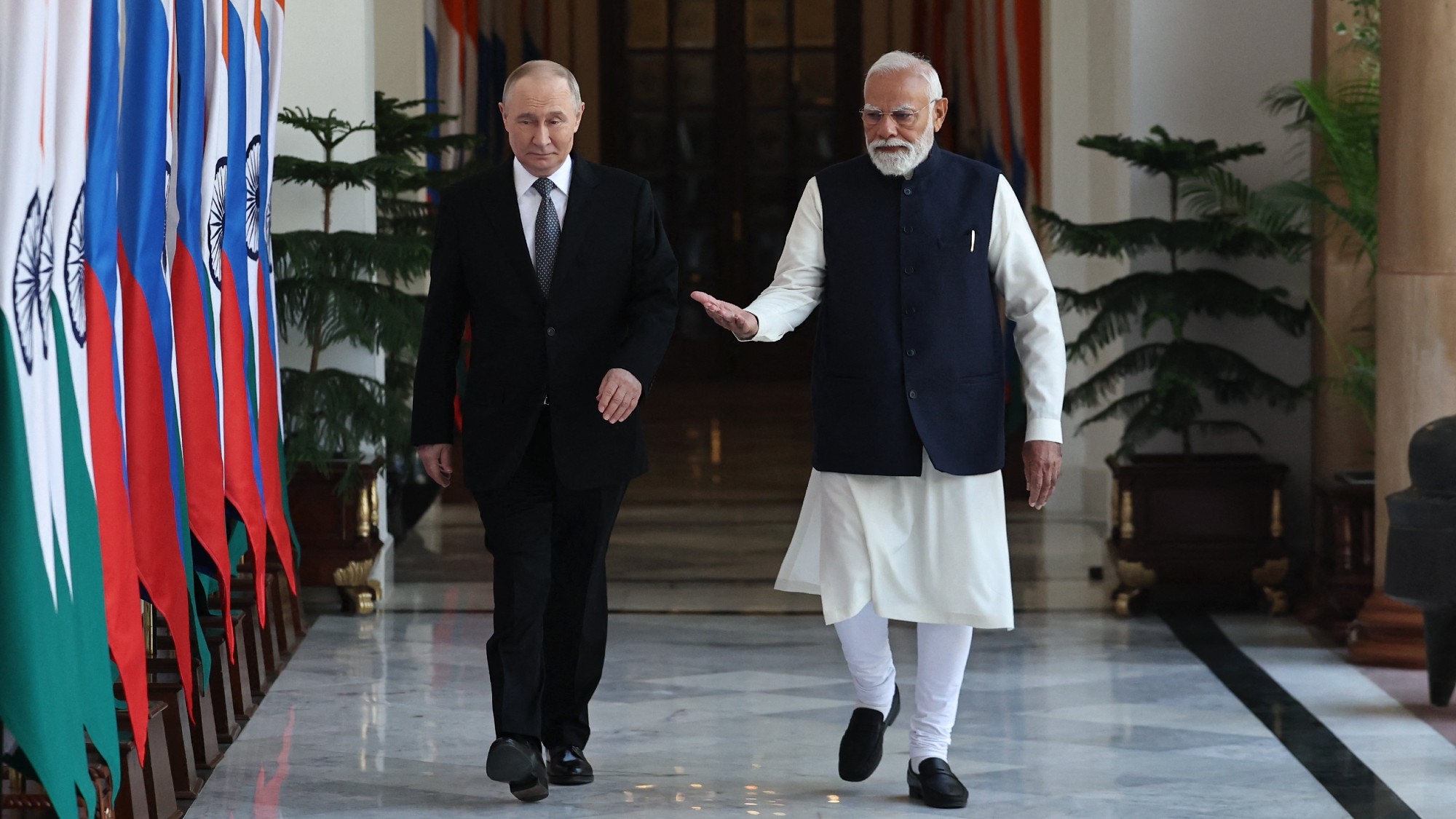 Is a Putin-Modi love-in a worry for the West?
Is a Putin-Modi love-in a worry for the West?Today’s Big Question The Indian leader is walking a ‘tightrope’ between Russia and the United States
-
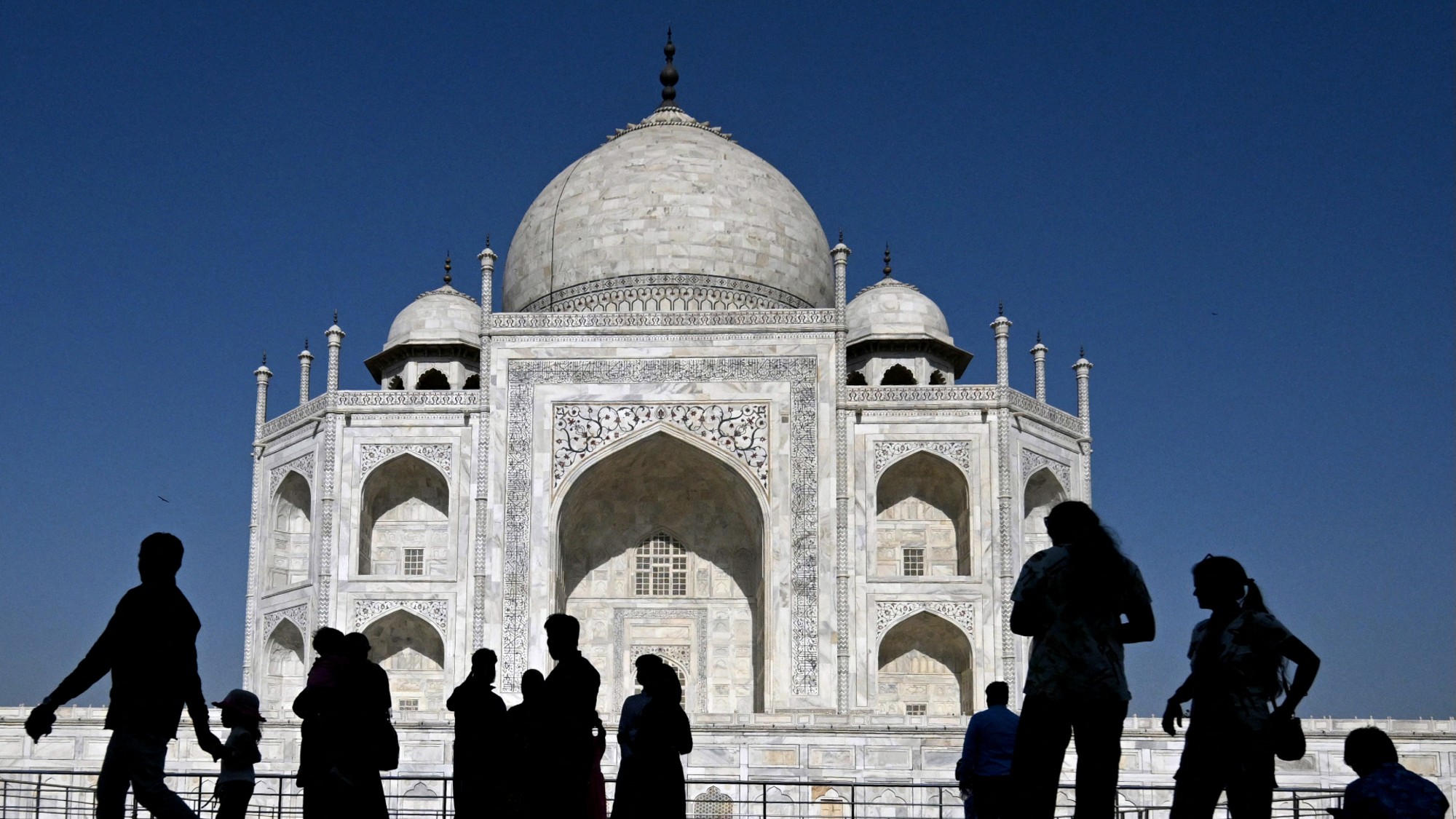 ‘These attacks rely on a political repurposing’
‘These attacks rely on a political repurposing’Instant Opinion Opinion, comment and editorials of the day
-
 ‘Latinos bring a wealth of knowledge and cultural connection to the ocean’
‘Latinos bring a wealth of knowledge and cultural connection to the ocean’Instant Opinion Opinion, comment and editorials of the day
-
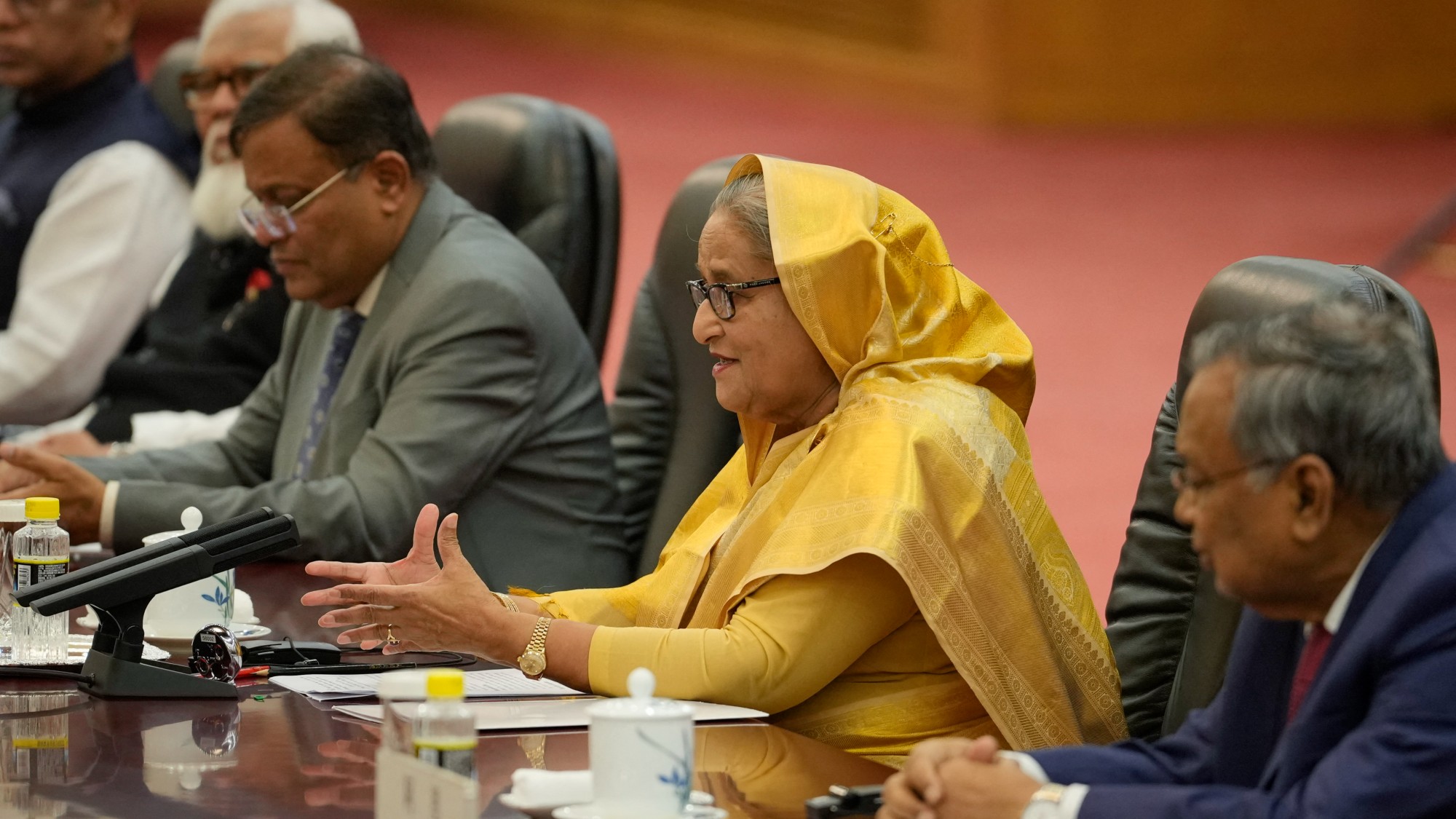 Sheikh Hasina: why ousted Bangladesh PM has been sentenced to death
Sheikh Hasina: why ousted Bangladesh PM has been sentenced to deathThe Explainer The country’s longest-serving leader spearheaded a ‘ruthless, state-led crackdown’ of protestors in 2024, and faces extradition from India
-
 'Total rat eradication in New York has been deemed impossible'
'Total rat eradication in New York has been deemed impossible'Instant Opinion Opinion, comment and editorials of the day
-
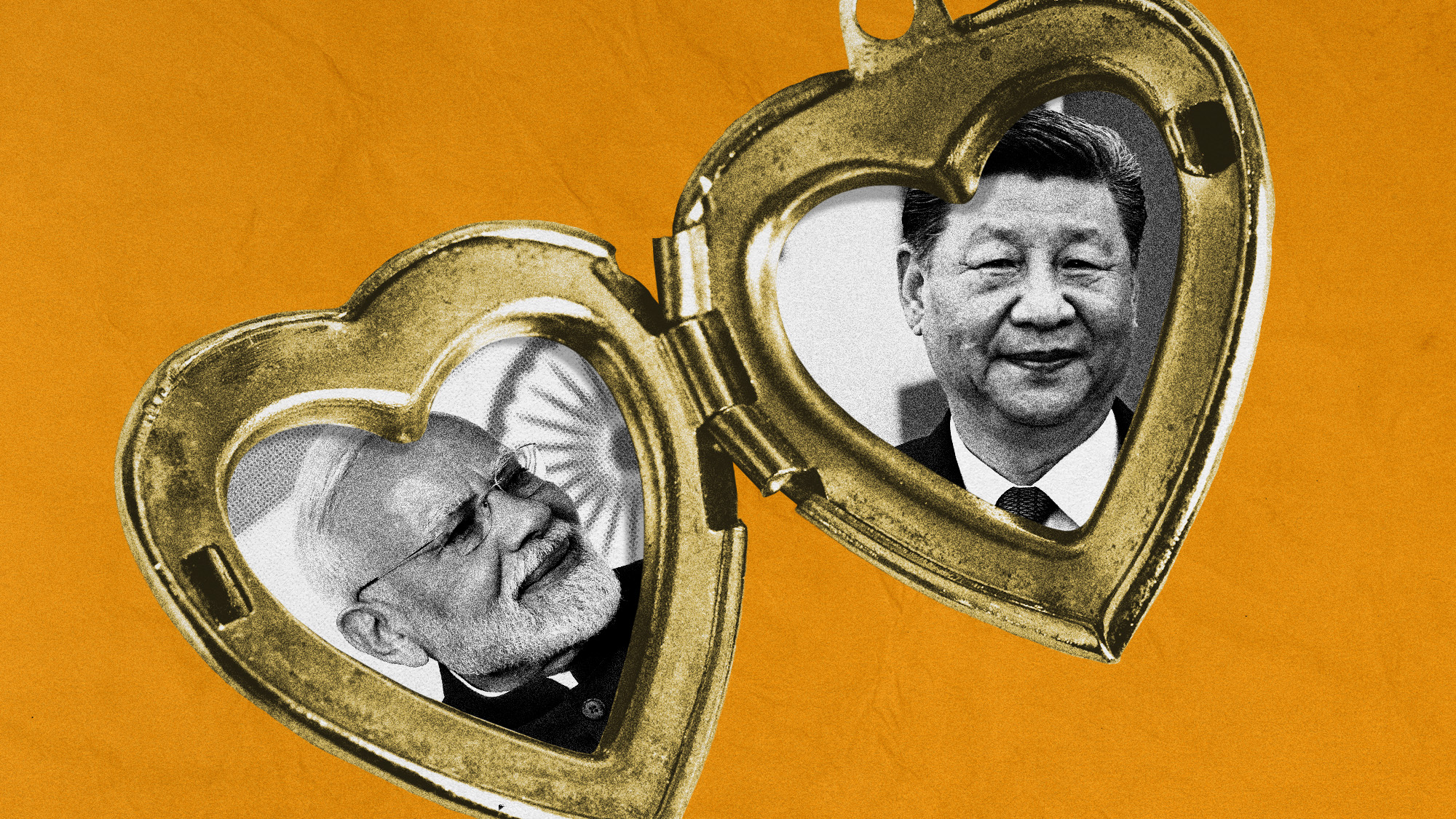 Did Trump just push India into China's arms?
Did Trump just push India into China's arms?Today's Big Question Tariffs disrupt American efforts to align with India